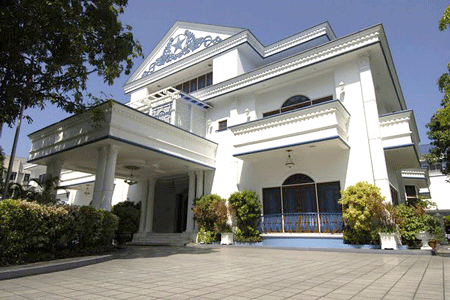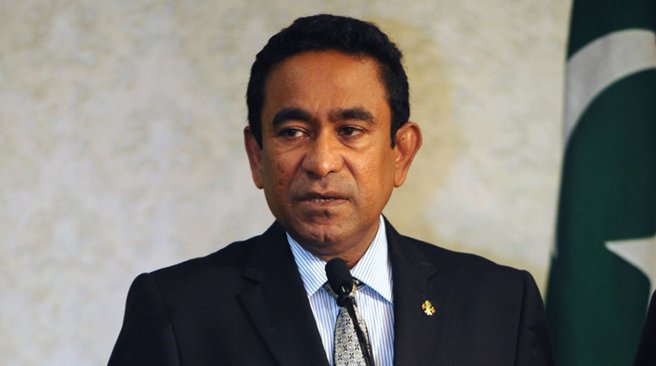Male, August 30 (Maldives Independent): Abdulla Yameen, the president of the Maldives, is facing a colossal legitimacy crisis. Just three years into his presidency, he is battling a broad coalition of opposition parties headed by his former deputy, Dr Mohamed Jameel Ahmed, and a breakaway faction of his own party led by his half-brother and former president of 30 years, Maumoon Abdul Gayoom.
Fuelled by the split within the Progressive Party of the Maldives, the establishment of the Maldives United Opposition, and a spate of arrests of several soldiers, Malé is rife with rumours of the president’s imminent ouster.
Can the opposition or the Gayoom faction remove Yameen from office? What are the legal avenues available to them? Who are the key players?
According to lawyers the Maldives Independent spoke to, the 2008 constitution offers two avenues for the removal of a sitting president – impeachment and arrest. The consent of the parliament and the supreme court are key in both scenarios. The police and the prosecutor general play a major role in the latter.
Impeachment
The most direct process to oust a sitting president, according to the constitution, is impeachment by a two-thirds majority of the People’s Majlis. This amounts to 57 MPs of the 85-member house.
The signatures of a third of the parliament, or of 28 MPs, are required to initiate impeachment proceedings. The motion is justified only if MPs believe the president has breached an Islamic tenet or the constitution, engaged in “serious misconduct unsuited to the office of the presidency,” or is incapable of performing his duties.
While the MUO’s allegations against Yameen are serious – human rights abuses, corruption and sabotage of the system of separation of powers – it is unlikely to win an impeachment motion (the president has denied allegations).
The main opposition Maldivian Democratic Party has 21 MPs. Its ally, the Adhaalath Party only has one MP. This is six short of the number required to file an impeachment motion. The eight MPs of the Jumhooree Party have mostly sided with the government in the past, but some six or seven MPs have rejected government-sponsored bills in recent votes.
The PPM and its ally, the Maldives Development Alliance have 47 and six MPs, respectively. At least seven of the 53, including Gayoom’s son, MP Faris Maumoon, have defied Yameen’s orders in recent votes, but nevertheless, the Yameen faction was able to push through controversial bills with a comfortable margin.
Even if the People’s Majlis were to impeach Yameen, the supreme court could overturn the impeachment. Article 113 of the constitution gives the apex court the “sole and final jurisdiction to determine all disputes concerning the… removal of the president by the People’s Majlis.”

Arrest
Earlier this month, the police issued a summons for Jameel, who lives in self-imposed exile in the United Kingdom, asking him to present himself at the police headquarters, ostensibly over a fake arrest warrant for Yameen issued in Feburary. The MUO’s response was defiant. Jameel will return “on the trails of Yameen’s arrest,” it said in a statement.
MUO leaders have repeatedly vowed to arrest Yameen.
The Maldives constitution does not grant sitting presidents immunity from criminal prosecution. Article 127 states that the president “shall be answerable in law for any alleged criminal offence, whether committed before or during his term in office”. To do so, the police must seek an arrest warrant from the criminal court or a higher court.
A previous attempt to orchestrate Yameen’s arrest ended in the prosecution and jailing of a judge and the former chief prosecutor on terror charges. The pair were handed a 17-year-jail sentence each. The plot failed despite a major shakeup of the police force and the judiciary months earlier, in the wake of the arrest of Yameen’s deputy, Ahmed Adeeb.
Meanwhile, even if state prosecutors file charges, the parliament could delay criminal proceedings against the president. Article 127 states that if the president is prosecuted, “the People’s Majlis may if it so sees fit, by resolution, provide that such proceedings shall not be continued until after the expiration of the term of office.”
In the event criminal charges are formally filed, and the parliament delays prosecution, some lawyers contend that the supreme court could step in, and review the president’s eligibility to remain in office, which means that the apex court has final say.































































